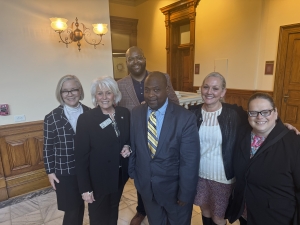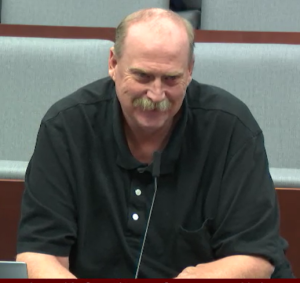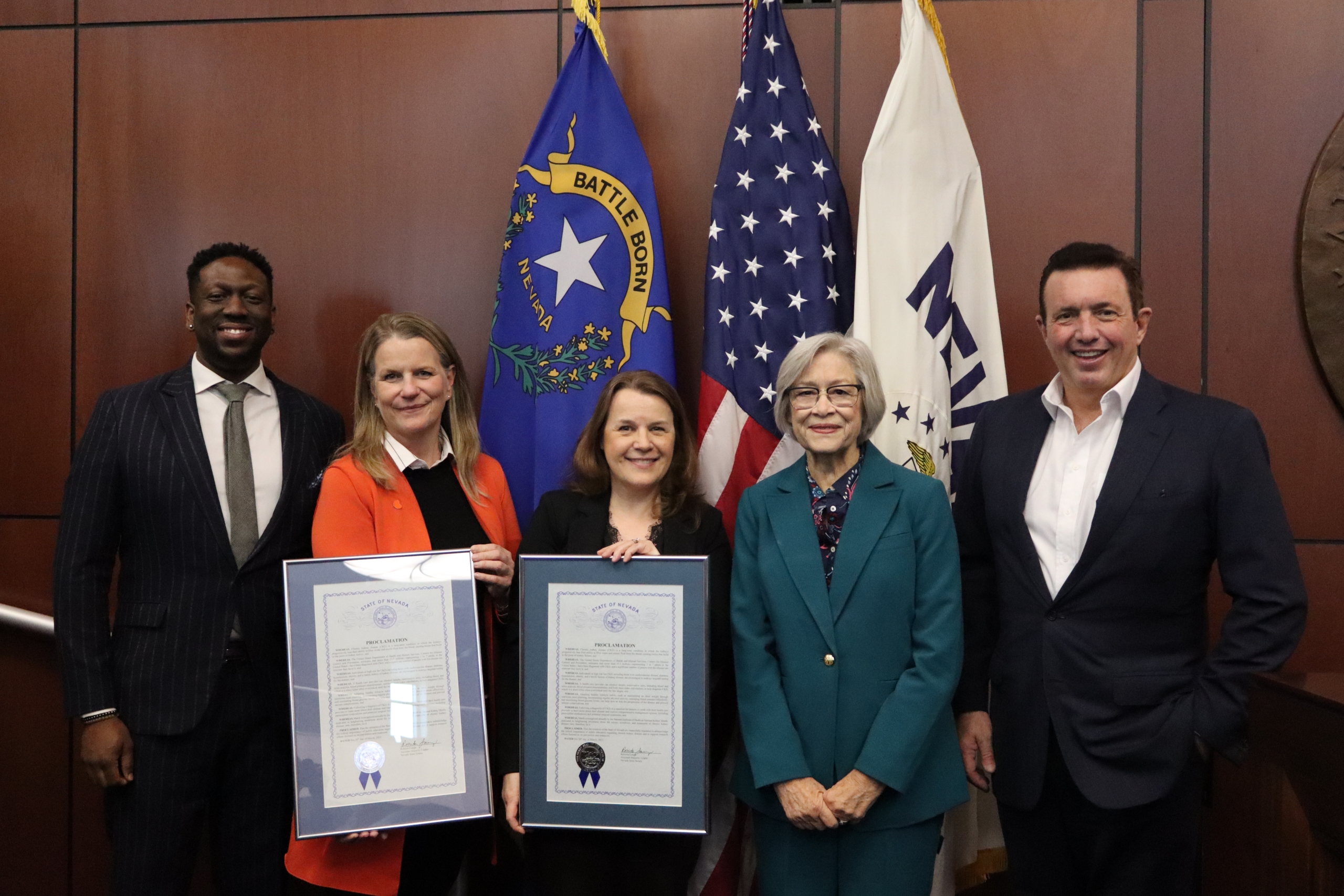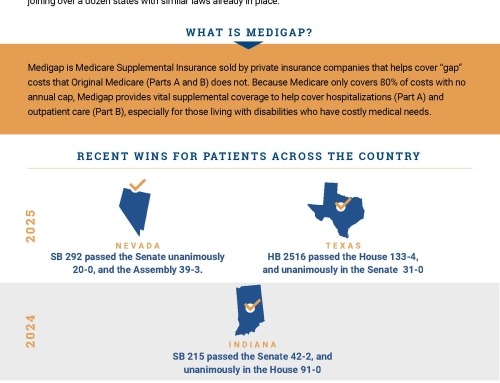
Elizabeth Lively, DPC Eastern Region Advocacy Director

Pamela Zielske, DPC Western Region Advocacy Director
DPC achieved key state wins for ESRD patients as several states passed Medigap premium protections during the 2025 session, with legislation in additional states still in play. In addition, several states passed “birthday rule” bills, which aim to allow more flexibility and patient choice for individuals with Medicare Supplement plans by providing a window for Medigap enrollees to change their plans without medical underwriting. As insurers price their plans differently, enrollees may find a more affordable premium for the same plan from a different insurer.
Legislation providing Medigap premium protections for under-age 65 Medicare-eligible ESRD patients remains active in several states as 2025 is the first year of a bi-annual, or two-year session in many states. In Georgia, the House Health Committee passed HB 323 unanimously, with the House of Representatives approving the bill just two votes shy of a unanimous floor vote. The bill, sponsored by Rep. Karen Mathiak, now awaits a hearing in the Senate when session resumes in January 2026. DPC Patient Ambassadors Kristi Flynn and Christopher Richards shared their stories with the House Health Committee, helping legislators understand the unique challenges faced by both kidney transplant and dialysis patients.

Elizabeth Lively, DPC Eastern Region Advocacy Director; Rep. Karen Mathiak, sponsor of HB 323; Christopher Richards, DPC Patient Ambassador; Kristi Flynn, DPC Patient Ambassador
Two historic bills that expand affordable access to Medigap passed with overwhelming support in the states of Nevada and Texas this legislative session. Both bills provide affordable access to Medigap plans for dialysis patients who are under age 65.
Sponsored and championed by Nevada State Senator, Roberta Lange (D-NV-7) and signed in June by Governor Joe Lombardo (R-NV), Senate Bill 292 guarantees access to affordable Medigap coverage to Nevadans who are under age 65 and on dialysis. SB 292 fills a devastating gap in Medicare coverage for Nevadans who had neither access to employer based private insurance coverage nor Medicaid. Nevada resident and DPC Patient Ambassador, Chuck Lizer, testified before both the Senate and Assembly Committees, which was instrumental in garnering the nearly unanimous support for this vital legislation.

DPC Patient Ambassador, Charles Lizer, testifying before the Nevada Assembly Committee on Commerce and Labor in favor of SB 292.
Under Texas State Representative Ryan Guillen’s (R-TX-31) steadfast leadership, House Bill 2516 became public law this past June. This critical legislation guarantees that individuals under age 65 with ESRD or ALS (Amyotrophic Lateral Sclerosis or Lou Gehrig’s disease), have access to affordable Medigap coverage. Prior to the passage of HB 2516, many Texans were priced out of Medigap coverage as a result of prohibitively high premiums. Many DPC Patient Ambassadors went the extra mile and submitted written testimony or shared their stories with local media, including Patricia Benavidez-Patel, Joyce Ford, and La Ronda Jones.
Medigap legislation introduced in three states will continue over to the 2026 legislation session, which begins in January. HB 24, sponsored by Ohio State Representatives Jamie Callendar and Bride Rose Sweeney, has been heard in the House Insurance Committee and is awaiting a vote. SB 469 was recently introduced by Michigan State Senator Jeff Irwin and has been assigned to the Senate Health Policy Committee. DPC is gearing up its grassroots advocacy efforts with our Michigan Patient Ambassadors, including DPC Board Chair Quianna Bishop, Board Member Alethea Walls and Patient Ambassador Lacye Ryan. In Massachusetts, companion bills have been introduced in both chambers. In the House, HD 4991 is sponsored by Rep. Thomas Stanley and Sen. Adam Gomez, a kidney transplant recipient, sponsored SD 3096. The Massachusetts bills provide a technical fix that eliminates the exclusion of under-age 65 ESRD patients from access to Medigap coverage. Patient Ambassador Len Gendron spoke with Sen. Gomez prior to the bill introduction during a tour at Len’s Fresenius dialysis center. And DPC Board Member Cheri Rodriguez Jones shared her story with Rep. Stanley at the National Conference of State Legislators, held in Boston.
Several states passed legislation allowing eligible individuals to switch Medigap plans or to switch back to Medigap coverage from Medicare Advantage coverage. In Rhode Island, SB 610, sponsored by Sen. Val Lawson, provides an open enrollment opportunity during the Medicare Annual Enrollment Period for Medigap enrollees to switch either to a different Medigap plan, or from Medicare Advantage to a Medigap plan without medical underwriting. And, under-age 65 individuals with Medicare Advantage coverage can switch to every Medigap Plan A policy (meaning Plan A from any insurer writing plans in Rhode Island) without medical underwriting.
Delaware passed SB 71, sponsored by Sen. Raymond Seigfried and Rep. Claire Snyder-Hall, which includes a “birthday rule” allowing eligible individuals to switch to another Medigap policy that provides equal or lesser benefits within 30 days prior or following their birthday date, or for those covered by Medicare Advantage to transition to Medicare supplement policies during the annual open enrollment period. Utah passed HB 258, sponsored by Senator Jake Fitisemanu, which allows Medigap enrollees to switch to a comparable or lower-tier plan without undergoing medical underwriting each year within 60 days of an enrollee’s birthday. And Virginia passed HB 2100, a “birthday rule” sponsored by delegates Michelle Maldonado and Irene Shin, allowing eligible enrollees to switch to another Medigap plan with the same benefits within 60 days from their birthday date.
How can you help? We are always looking for DPC Patient Ambassadors to share their stories by writing letters to legislators, attending meetings with their representatives, testifying at committee hearings, and participating in Action Alerts that are emailed to our members.
Building strong relationships with legislators through the legislative process is how DPC is able to achieve success and improve the quality of life for its members and their families. To learn more about how you can help our state advocacy program, visit the DPC website (www.dialysispatients.org/get-involved/).




